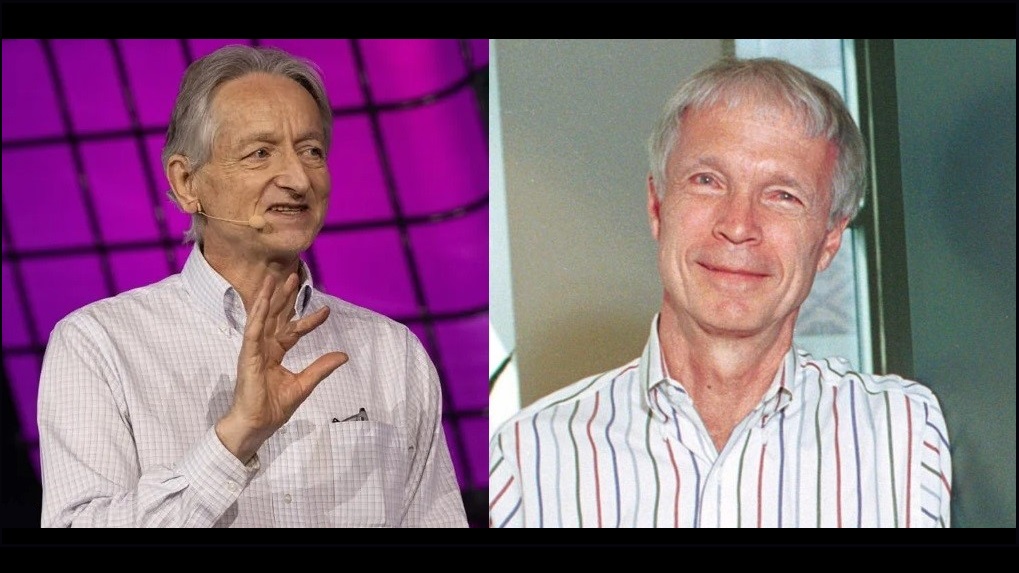Two pioneering scientists whose discoveries laid the foundations for artificial intelligence have won the world’s most prestigious physics prize, amid concerns over the dangers of the technology.
British-Canadian scientist Geoffrey Hinton and US scientist John Hopfield were this week awarded the Nobel Prize for Physics by the Royal Swedish Academy of Sciences for their use of physics tools to “develop methods that are the foundation of today’s powerful machine learning”.
The prestigious award comes with a prize of $1.5 million (11 million Swedish crowns), which will be split between the two winners.
Hopfield, a 91-year-old professor emeritus at Princeton University, pioneered an associative memory that can store and reconstruct images and other types of patterns in data.
Hinton, a 76-year-old professor emeritus at the University of Toronto, invented a method that can automatically find properties in data then carry out activities such as identifying specific elements in pictures.
Hinton, widely regarded as the “godfather of AI”, quit his role at Google early last year so he could speak more freely on the dangers of the technology he had pioneered.
‘More intelligent than us’
At a press conference following the awards, Hinton again voiced concerns over the rapid growth of AI and machine learning.
“We have no experience of what it’s like to have things smarter than us,” Hinton said.
“It’s going to be wonderful in many respects, in areas like healthcare.
“But we also have to worry about a number of possible bad consequences.
“Particularly the threat of these things getting out of control…I am worried that the overall consequence of this might be systems more intelligent than us that eventually take control.”
Nobel Committee for Physics chair Ellen Moons also raised concerns with the risks posed by the growing usage of AI.
“While machine learning has enormous benefits, its rapid development has also raised concerns about our future,” Moons told the media.
“Collectively, humans carry the responsibility for using this new technology in a safe and ethical way, for the greatest benefit of humankind.”
These echo the concerns raised by Hinton in May last year when he quit his role at Google, something he said he did so that he could “talk about the dangers of AI without considering how this impacts Google”.
More than a decade ago, Hinton developed a convolutional neural network that revolutionised the field of computer vision.
Past winners of the Nobel Prize for Physics include Albert Einstein, Niels Bohr and Enrico Fermi.
Last year’s award was taken out by Pierre Agostini, Ferenc Krausz and Anne L’Huillier for their work creating ultra-short pulses of light giving a snapshot of changes within atoms, with potential application in improving the identification of diseases.
The Nobel Prize for Medicine was also awarded last week to US scientists Victor Ambros and Gary Ruvkun for their discovery of microRNA and its role in gene regulation, which gave more information on how cells specialise.
Growing AI concerns
Last year a number of prominent figures in the tech world signed an open letter saying that AI carries the same level of risk to human life as nuclear weapons or pandemics.
Those who signed this statement included academics and executives from tech giants such as Microsoft, Google and OpenAI.
It came just months after another open letter called for a six-month pause on AI development in order to mitigate “profound risks to society and humanity”.
Signatories to this letter included Elon Musk, Steve Wozniak and more than 1,300 other academics, tech and business luminaries.
The implication of the huge growth in AI technologies can “flood our information channels with propaganda and untruth”, lead to the automation of “all the jobs”, the “loss of control of our civilisation” and the development “non-human minds that might eventually outnumber, outsmart, obsolete and replace us”, the letter said.










